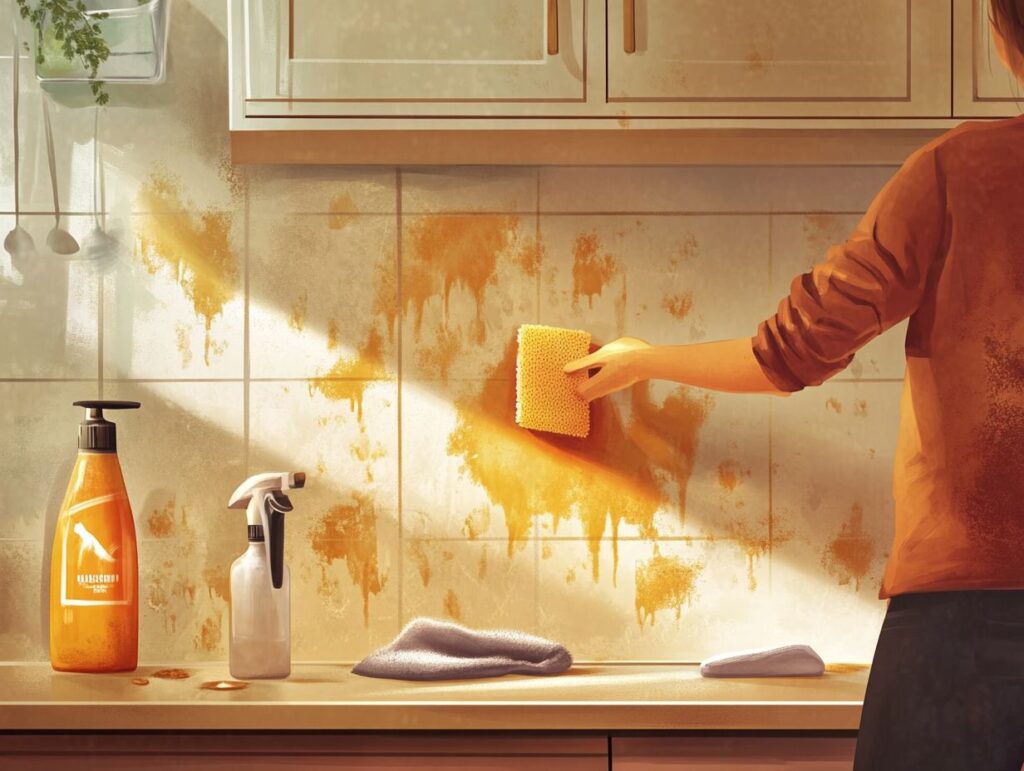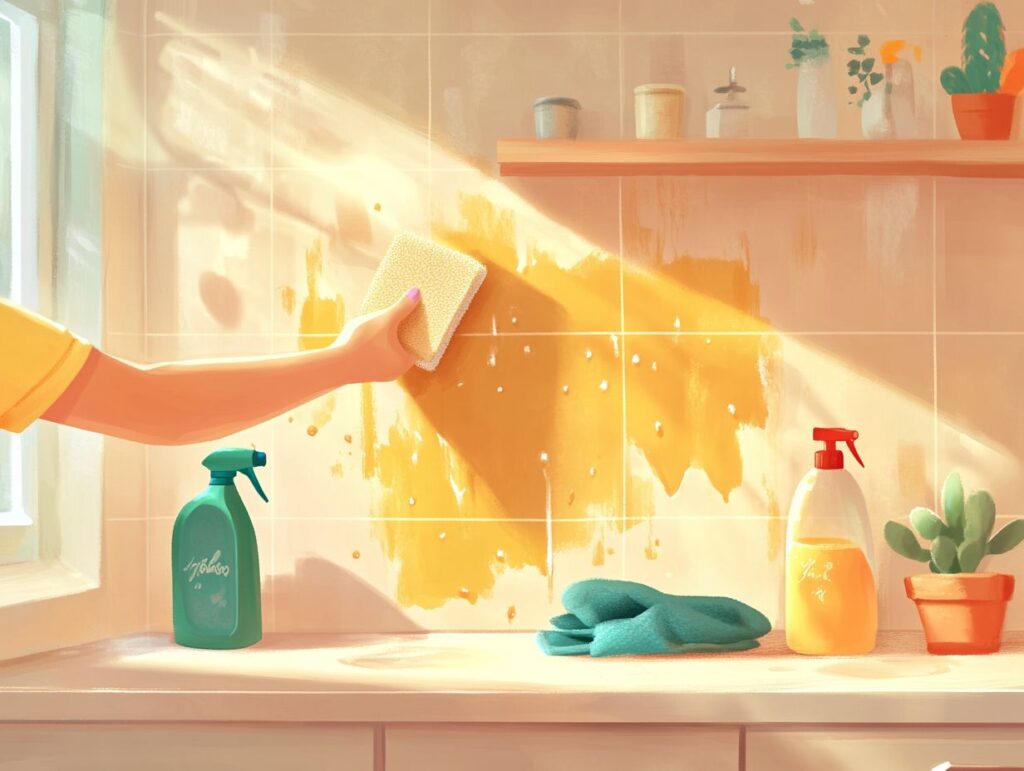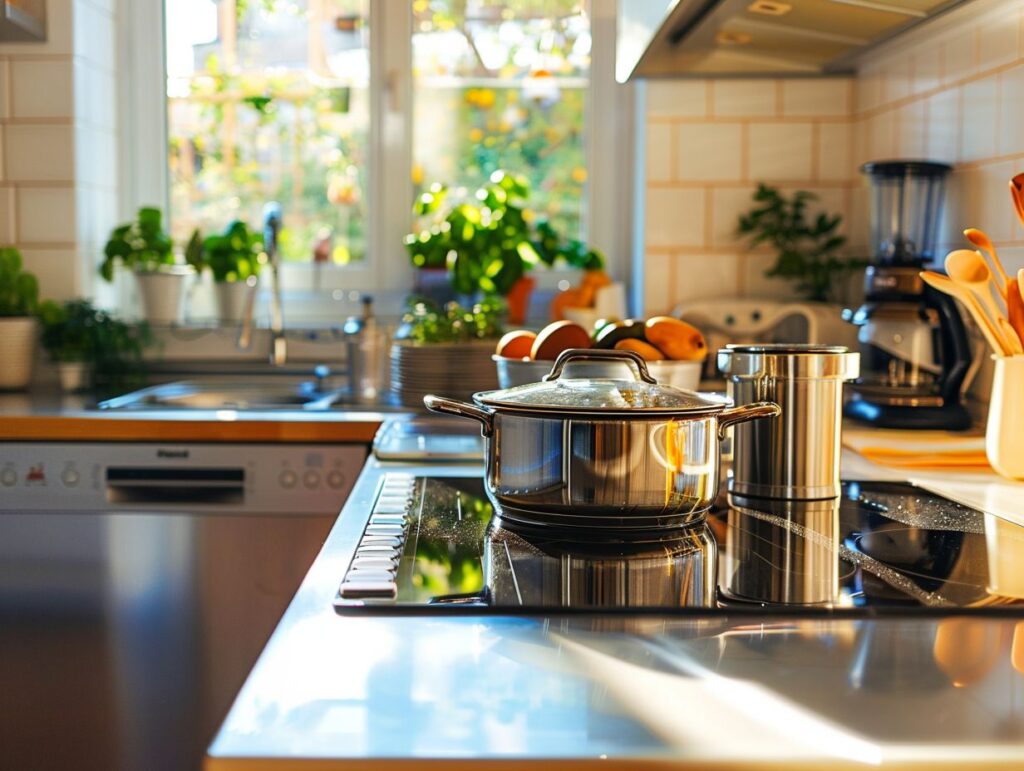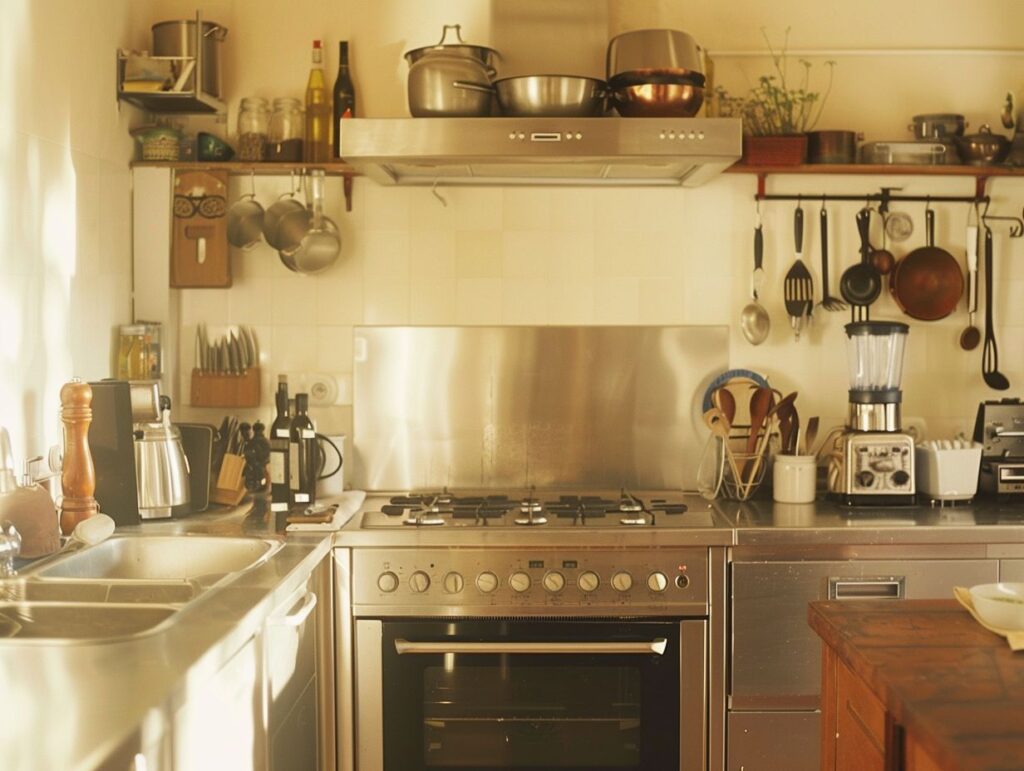Could there be an uglier sight in a kitchen than greasy streaks on the walls above the cooker? However, grease build-up in the kitchen is more than just an unsightly nuisance. It poses potential hazards and health concerns that can affect your home environment.
This article provides practical methods for tackling grease, from DIY solutions to commercial cleaners, and highlights best practices for maintaining a pristine kitchen. We’ll also discuss when it might be time to call in the professionals. Read on to keep your cooking space safe and clean!

The Importance of Removing Grease Build-up
Removing grease build-up from your kitchen walls and appliances is key to keeping your cooking space clean and hygienic. Grease affects the appearance of your kitchen, harbours bacteria, and creates potential fire hazards.
Regularly tackling grease protects your surfaces and enhances your kitchen hygiene, which is very important for your family’s health. With the proper cleaning methods, you can quickly deal with those stubborn grease stains, ensuring your kitchen remains a pleasant place for cooking and socialising.
Potential Hazards and Health Concerns
Ignoring grease build-up in your kitchen can lead to some serious health concerns and hazards. Over time, that accumulated grease can become a cosy home for bacteria, increasing the risk of foodborne illnesses. Plus, those slippery surfaces can lead to accidents and injuries when trying to whip up a meal. Regularly tackling grease build-up can reduce these risks and keep your cooking area safe.
If you let things slide and don’t maintain a clean cooking space, not only do you make these issues worse, but you could also face long-term health problems, such as respiratory issues from inhaling grease particles. And let’s not forget about fire hazards—neglected grease can ignite, threatening both lives and property. That’s why cleaning your surfaces, appliances, and ventilation systems is essential to prevent such dangers.
Focusing on kitchen hygiene makes meal preparation safer and creates a healthier home environment, a win-win for everyone involved.
Common Causes of Grease Build-up
Understanding the common causes of grease build-up in your kitchen helps you take proactive steps to prevent it. Grease usually accumulates from cooking activities, especially when frying or sautéing. That’s when oil and food residue tend to splatter onto various surfaces.
Don’t forget about your kitchen appliances; hobs, ovens, and extractor fans can contribute to the grease problem. By recognising these factors, you can make smarter cleaning choices and adopt some handy kitchen tips to keep that grease accumulation at bay.
Identifying the Culprits
Identifying the culprits behind grease build-up is crucial for effective cleaning and maintenance. Common sources include cooking methods that generate a lot of oil, such as frying and forgetting to wipe down kitchen surfaces after use.
Check around hobs, oven doors, and splashbacks—these spots often hide stubborn oil stains that need attention. You can choose the right cleaning tools and methods for a successful grease removal mission by determining where the grease comes from.
Inspect surfaces that usually get splattered or spilt on to tackle these messes effectively. Look for dark patches along edges and crevices where grease lingers.
Tools like microfibre cloths can be a game changer since they capture oil without spreading it around. For those tougher stains, a scraper or a soft-bristled brush can help lift the grime without too much fuss.
Remember, specialised degreasers are made for kitchen use; they can work wonders at dissolving stubborn grease while saving you from endless scrubbing. Using these strategies, you can restore your kitchen’s cleanliness and create a safer cooking environment.

Methods for Removing Grease Build-up
There are plenty of effective ways to tackle grease build-up on kitchen surfaces, keeping your cooking space clean and safe. You can whip up some DIY solutions with natural cleaners like vinegar and bicarbonate of soda, or you might prefer to grab a commercial degreaser that promises quick and easy grease removal.
Your chosen method depends on the grease situation and your preference for eco-friendly cleaning options.
DIY Solutions
DIY cleaning solutions are a fantastic way to tackle that pesky grease build-up without diving into harsh chemicals. For example, mixing vinegar with bicarbonate of soda creates a powerful potion that acts as a natural cleaner, cutting through grease and grime like a champ. Washing liquid with hot water can also help break down oil stains on kitchen walls and appliances.
These natural methods are effective and eco-friendly, making them a smart choice for keeping your kitchen in tip-top shape.
Combine equal water and vinegar in a spray bottle to make a versatile all-purpose cleaner. This solution is perfect for worktops, hobs, and chopping boards, offering antibacterial properties that disinfect surfaces while still being safe for food contact.
Another handy trick is to blend lemon juice with bicarbonate of soda for a powerful scrub that tackles tough stains and leaves a refreshing citrus scent in its wake.
By opting for these DIY formulations, you can embrace a healthier, greener cleaning routine that leaves your kitchen sparkling without the downsides of commercial cleaners.
Commercial Cleaners
Commercial cleaners can be your best friend for effective cleaning when dealing with stubborn grease build-up. Look for products labelled as degreasers or grease busters, specifically designed to tackle tough grease stains and food residue. These specialised cleaning supplies can save time and effort, allowing you to clean your kitchen surfaces and appliances with minimal scrubbing.
Moreover, many commercial cleaners come in different forms—like sprays, foams, and wipes—so you can easily pick the application method that works best for you. Most of these products pack a punch with powerful ingredients like surfactants and solvents that break down grease molecules easily.
For instance, solvent-based cleaners are ideal for heavy-duty jobs, while enzymatic cleaners are more eco-friendly and can tackle organic stains.
Understanding the different types can improve your cleaning game, ensuring you hit every stubborn spot with the right solution.
Preventing Grease Build-up in the Future
Preventing grease build-up in your kitchen is just as crucial as tackling it once it appears, and establishing a routine can make a difference.…




